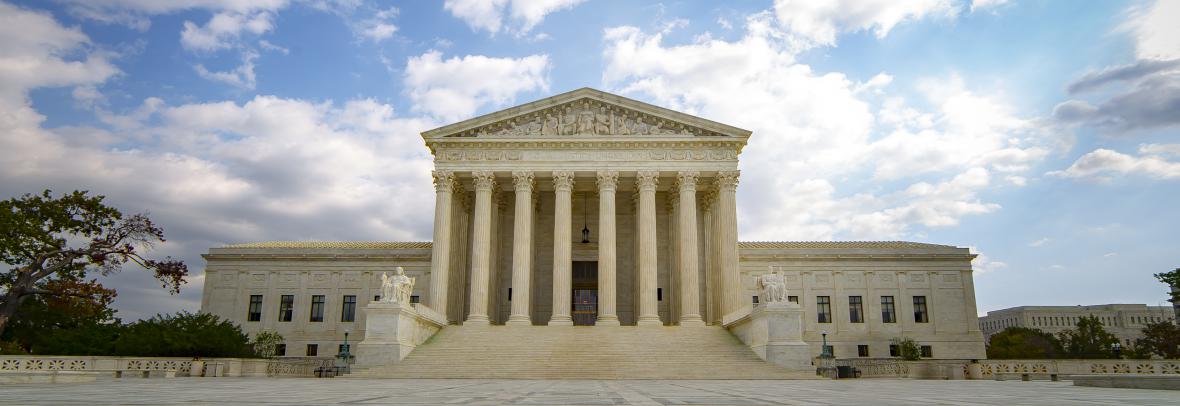
U.S. Supreme Court Backs Two Property Rights Cases
The National Association of Realtors was among the organizations that filed amicus briefs in support of property owners' rights.
WASHINGTON – The U.S. Supreme Court issued two unanimous rulings in the past weeks in favor of landowners under the Constitution’s Takings Clause, which bars the government from taking private property for public use without just compensation.
In both cases, the National Association of Realtors® back the defendants who were protecting their property rights:
- Sheetz v. County of El Dorado, California
Dispute: In 2016, California landowner George Sheetz sued the county government after it imposed a $23,000 traffic impact fee study when he was trying to get a building permit for a 1,800-square-foot manufactured home on his property. He paid the fee, which was used to repair local infrastructure. Sheetz and his attorneys said the fees were unconstitutional because they violated the Takings Clause of the Fifth Amendment. After lower courts sided with the county, Sheetz took the case to the U.S. Supreme Court.
Supreme Court ruling: The government cannot demand large development fees from property owners in exchange for building permits.
Justice Amy Coney Barrett wrote: “In sum, there is no basis for affording property rights less protection in the hands of legislators than administrators. The Takings Clause applies equally to both — which means that it prohibits legislatures and agencies alike from imposing unconstitutional conditions on land-use permits.”
NAR, the American Property Owners Alliance, the Realtors® Land Institute and the California Association of Realtors® wrote in an amicus brief for the case, “Impact fees have real consequences for homeownership in America, particularly with today’s high interest rates and limited housing affordability. Many prospective homebuyers are priced out of the market by the tens of thousands of dollars in impact fees imposed on the average property owner.”
The case will be sent back to the state courts for further review. Read the ruling.
- DeVillier v. Texas
Dispute: In repairing Interstate 10 just outside Houston, the Texas Department of Transportation build a concrete wall to stop the roadway from flooding. As a result, nearby properties flooded during hurricanes and strong storms. Richie DeVillier and dozens of other landowners sued, saying the flooding rendered their land unlivable. They argued the Takings Clause of the Constitution does not permit the government to take their property without paying for it. Lower courts sided with the state, so they brought the case to the Supreme Court.
Supreme Court ruling: Texas law provides DeVillier with a cause of action for compensation, which DeVillier and the other property owners may pursue.
In an amicus brief, NAR, Texas Realtors® and the American Property Owners Alliance said the practice of taking private property without just compensation “threatens to eviscerate the real property interests of homeowners as well as the industries that drive homeownership nationwide.”
In a different written statement, NAR said, “Lawsuits can take years to resolve, but they are vital to NAR’s advocacy. The association has had numerous victories in local, state and federal courts and is not hesitant to go all the way to the Supreme Court in defense of property rights.”
DeVillier v. Texas was remanded to the lower court. Read the ruling.
© 2024 Florida Realtors®
